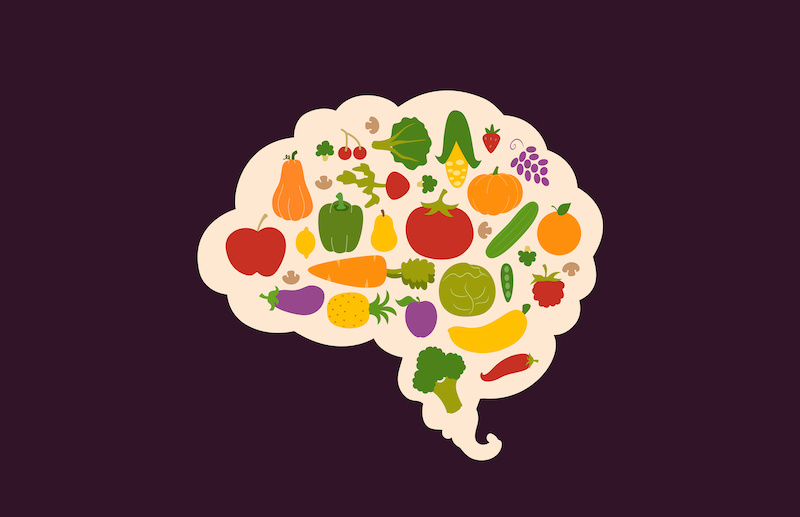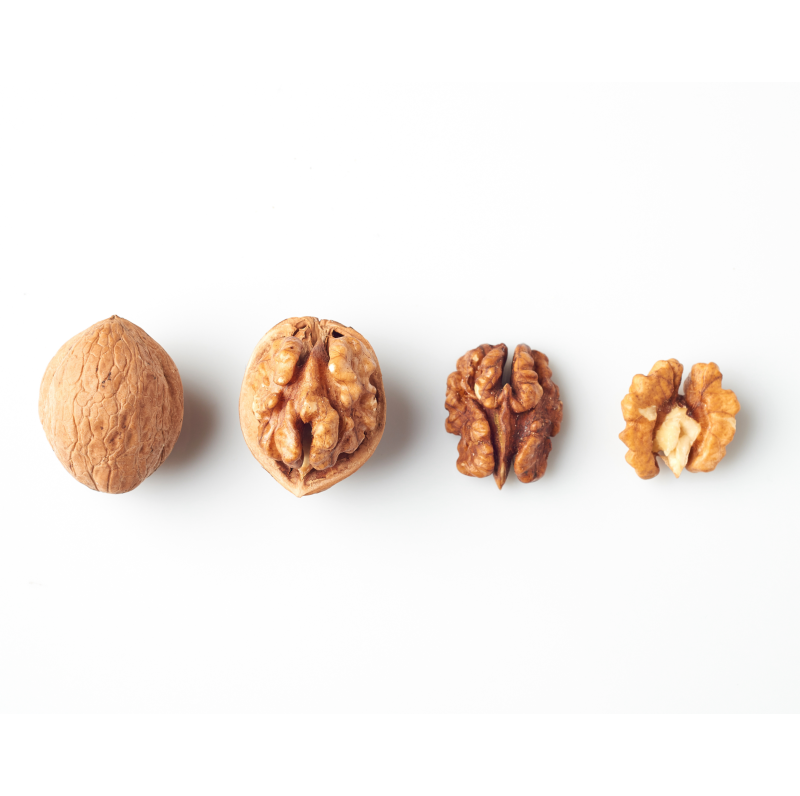Nourishing Minds: The Lizzy Care Guide to Diet & Dementia Care
18 Apr 2023
Lizzy Care is reimagining dementia care and providing the resources for today’s needs and tomorrow’s challenges.
At Lizzy Care, we understand that caring for someone with dementia extends beyond just emotional support – it encompasses their entire well-being, including their nutritional needs. Eating and drinking challenges are common in dementia care, and we’re here to help you navigate these with compassion and knowledge.
Understanding Dietary Needs in Dementia Care
Caring for a loved one with dementia means adapting to their evolving needs, including their diet and mealtime habits. As dementia progresses, changes in taste preferences or mealtime recognition can occur, impacting their nutritional intake. Our guide offers practical advice to support your loved one’s dietary needs, ensuring they receive the nourishment essential for their overall health and wellness.
People with dementia may also have physical difficulties, such as loss of hearing or sight, that causes further problems with eating and drinking.

It’s common for people with dementia to have difficulties with eating and drinking. The exact difficulties you will face with your loved one will be unique to their situation.
As dementia progresses some people can begin to lose their appetite or will forget certain meals. As a result of their dementia they might find food doesn’t smell or taste as good as it used to as dementia can alter how someone experiences flavor. People with dementia can also stray from their usual preferences around food. For example, they may forget that they are vegetarian or don’t eat certain foods for religious reasons. Food might start to look unfamiliar and they are unsure how to begin eating or using a knife and fork.
The Significance of Diet in Cognitive Health

A balanced diet plays a crucial role in supporting cognitive function. While there’s no one-size-fits-all diet for dementia, focusing on regular, nutritious meals can significantly enhance overall health.
Most research into the connection between diet and cognitive function has focused on the impact of specific nutrients on the brain. The nutrients that have been studied include the vitamins B6, B12, C, E and folic acid, as well as omega 3 essential fatty acids. So far the research has been inconclusive and so there is no specific guidance on nutritional intake.
Managing medical conditions like diabetes, high blood pressure and high cholesterol through diet can also reduce dementia risks. Consider heart-healthy diets like the Mediterranean diet, which benefits brain health too.
Mediterranean diet
Rich in fruits, vegetables, legumes, and whole grains, the Mediterranean diet is low in red meat and high in omega-3-rich fish, offering benefits for both heart and brain health. Research links this diet to reduced risks of stroke, type 2 diabetes, and improved cognitive function.
Feeling overwhelmed about meal planning for dementia care? Lizzy Care’s coaches can offer further guidance on creating nutritious, easy-to-prepare meals. We can also help you find prepared meal options to save time. Get in touch to find out more.
Recognizing and Overcoming Mealtime Challenges
Dementia has a big effect on a person’s life, experience and abilities and this is just as true for eating and drinking as anything else. When a person’s eating or drinking habits change it can often be distressing for them and the people who love them. Try to pick up on any non-verbal clues such as body language and eye contact as a means of communication to indicate your loved one may be experiencing challenges with eating or drinking.
Some common things that make eating and drinking difficult for people with memory care needs are:
- Problems chewing and swallowing.
- Difficulty preparing or cooking food.
- Inability to recognize feeling hungry or thirsty. Your loved one may think that they have already had something to eat or drink or may ask for more food when they have already eaten. They may also forget to eat and drink regularly.
- Using cutlery can become difficult due to reduced co-ordination or they may forget how to use it.
- Your loved one’s food preferences might start to change. They might start to like more sweet or spicy foods than previously.
- They might forget that they are a vegetarian or don’t eat certain foods for religious reasons
The rest of this course will walk you through how you can help your loved one with preparing their own meals, eat independently, handle food and drink related health problems and promote oral hygiene.
Meal Preparation Tips for Independence
If a loved one is finding it difficult to prepare meals it will naturally begin to impact their diet.
Keeping foods simple and easy to prepare is key. Encourage your loved one to buy pre-prepared meals where possible. These could be frozen, refrigerated or room-temperature.
If your loved one is starting to find it difficult to use utensils for cutting, chopping or peeling then buying the pre-cut or frozen fruit and vegetables can help them continue to eat more healthy options.
Consider adding signs and notices around the kitchen to help your loved one find food, cutlery, crockery and tools. Using pictures as well as the words on the sign can help your loved one remember the purpose of the object.
You can also add alarms or reminders to help the person remember when to eat.
As dementia progresses your loved one may lose the ability to tell when foods are out of date or have expired. When visiting with your loved one you can help them by moving items with a shorter shelf life to the front of the cupboard or fridge, help them shop for more long life items, and throw away any items that have already expired. When shopping, look for products like canned fruit or meats. Buying items that come in small individual packages can help your loved one.
You can also investigate the use of a prepared meal service that can really help your loved one eat good healthy food that requires minimal preparation. Lizzy has a relationship with Epicured, a prepared meals company that supports a doctor-recommend, dietician-approved low FODMAP diet. You can get 15% of all your meals from https://www.epicured.com/ if you use the discount code: lizzy.
Tackling mealtime challenges
Mealtime itself can often be challenging for a person with memory care needs particularly if they have a more advanced or severe form of dementia. Maintaining independence while eating is an important part of supporting someone with dementia, especially when they are still living alone.
Little changes can help to make mealtimes less stressful and more enjoyable as well as improving the diet.
Before the meal:
- Understand that additional time might be needed to eat and so plan that into the day.
- Encourage your loved one to visit the bathroom before meals.
- Help your loved one to wash their hands or make use of a hand wipe before their meal.
- Serve the meal one course at a time.
- If your loved one needs to use glasses, a hearing aid or dentures make sure that these are in reach.
- Clear the table of distracting items such as vases or lots of condiments.
- If your loved one gets distracted during mealtimes, seat them at the table as late as possible.
- Keep the surrounding area as calm as possible. Noise from TVs or radios can sometimes be distracting but this is not the case for everyone, be sensitive to what your loved one needs.
During the meal:
- Use brightly coloured plates, try to use primary colors such as red, yellow and blue. These will help make it easier for your loved one to see the food that is on their plate. Pastel colors are more difficult to recognize.
- Use cups and cutlery that have thick handles and make them easy to grip.
- If your loved is finding using cutlery particularly difficult then consider using adaptive cutlery
- Consider switching to using plastic cups or mugs.
- Sit yourself at eye level with your loved one. It might be easier to sit by their side or in front of them. Maintain eye contact with your loved one.
- Talking about and naming foods and drinks that you are eating or offering can help to trigger memories.
- Be careful to discourage your loved one from talking while eating if there is a risk of choking.
- Ensure you give our loved one enough time to swallow each mouthful before continuing.
Between meals:
Your loved one may not be able to eat the same portion sizes as previously and may need to eat smaller meals or snacks throughout the day.
Prioritizing Oral Health in Dementia Care
Oral health is a crucial, often overlooked aspect of dementia care. A diet high in sugar can increase dental issues, so it’s important to maintain regular dental hygiene practices. From choosing the right toothbrush to scheduling regular dentist visits, we guide you through maintaining optimal oral health for your loved one.
If you suspect your loved one has a dental problem it is best to speak to a dentist as soon as possible but let them know about your loved ones dementia before the visit. Forming a good relationship with a dentist while still in the early stages of cognitive decline will help your loved one to become familiar with the practice and the people who work there, which will make it easier as the disease progresses.

Tips for good oral health for people with dementia
- Encourage your loved one to continue to brush their teeth twice a day. Make sure that they are using a toothpaste that contains fluoride.
- If your loved one is struggling to brush their teeth consider getting them an electric toothbrush or a toothbrush with an adaptive handle.
- If your loved one uses dentures then make sure they fit comfortably. Denture fixatives can help secure them during eating.
- It is best not to brush teeth immediately following meals. Try to wait at least an hour after eating as this gives the saliva a chance to neutralize any acid that is on the teeth.
- Drinking milk or having a piece of cheese after eating a particularly sugary meal or a snack can also help to neutralize the acid.
- Drinks high in sugar or high calorie supplements should be drunk in one go and not sipped over a longer period.
- If you are concerned your loved one is eating a lot of sugar consult with their dentist to investigate use of preventative treatments such as a high fluoride toothpaste or Chlorhexidine varnish.
- Some medications can also be high in sugar, talk to your loved ones doctors about getting sugar free versions of medications.
- Medications can also cause a dry mouth. It is possible to get artificial saliva. See if the dentist or doctors can help.
Wrapping up
At Lizzy Care, we’re committed to providing you with the resources and support you need for effective dementia care at home. For more insights and personalized guidance book a free consultation.
Remember, you’re not alone in this journey. Together, we can ensure your loved ones receive the care and dignity they deserve.


